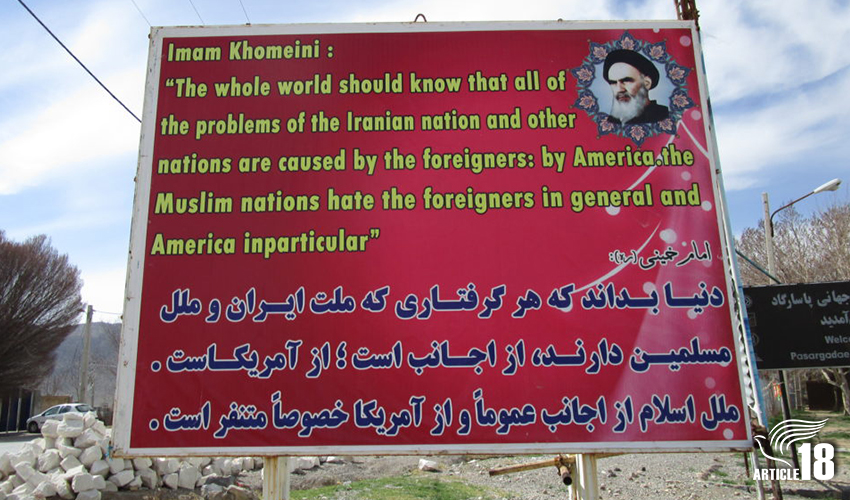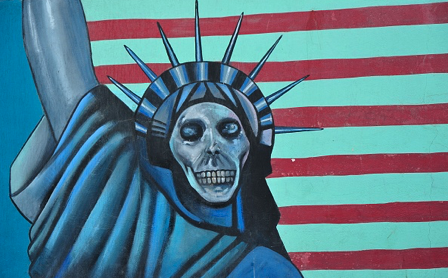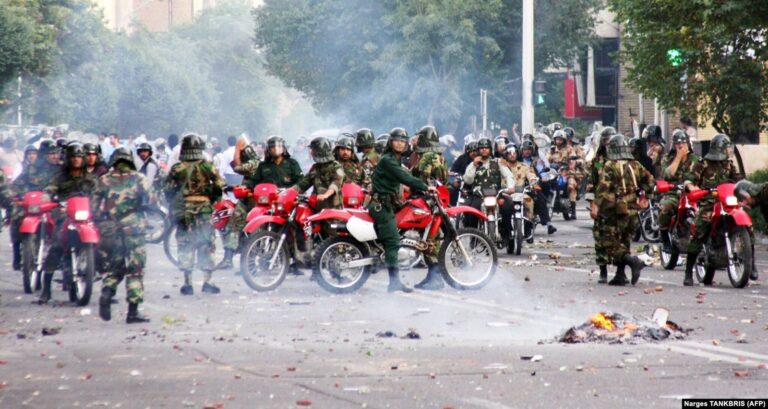Iran’s parliament has passed the first draft of a bill that champions the death penalty for anyone convicted of “spying” for or “cooperating” with “hostile states” – “especially the United States”.
The bill, which was passed on 8 June, supposedly seeks to address “ambiguities” within Iran’s penal code regarding the “identification of hostile countries”, as well as “weak” deterrents against alleged anti-state actors.
The news should concern advocates for human rights in Iran, including for Iran’s religious minorities, given that Revolutionary Courts routinely label any action that deviates from the wishes of the regime to be an “action against national security”.
And as Hamid Gharagozloo from the International Organisation to Preserve Human Rights noted, “Every minority has been labelled as an ‘agent of foreign powers, with the aim overthrowing the regime’.”
How could the bill affect Christians?
House-churches are among the many groups to have been denounced by the regime as “hostile” entities, with virtually every recent prosecution of Christians citing their membership of such “enemy” groups, and some even referencing alleged collaboration with “foreign” or “Zionist” entities such as the USA and Israel.
Some Christians have even been specifically convicted of “spying” in recent years, such as Iranian-Assyrian church leader Shamiram Issavi, who was sentenced to five years in prison in 2018 for “acting against national security by … training Christian leaders in Iran for the purposes of espionage”.
If the new bill were to become law, such a conviction could lead to the death sentence.
The first article of the bill states that “spying or cooperation with hostile states, including the United States government, against national security or national interests, will be considered an act of ‘corruption on Earth’ [mofsed fel-arz]”, which under Article 286 of the Islamic Penal Code is punishable by death.
An Iranian Christian convert now seeking asylum in Germany told Article18 recently that intelligence agents in Iran had alleged that the girls refuge she had set up had been “purchased with the help of foreign Christians, with the aim of leading the girls away from Islam”.
“The interrogators wanted to know more about how I’d set up the refuge, and where I’d got the money,” Bita Rezaee explained. “They thought we were funded by churches in America.”
Christian convert Ebrahim Firouzi, who has spent years in prison and is now living in enforced internal exile, is another who has been quizzed for relations with supposedly “hostile groups”, including Article18.
Last year, the prosecutor in Ebrahim’s city of exile queried why he had contacted “foreign” media outlets such as Article18, while among the charges leading to his original prison sentence – back in 2013 – were “communication with anti-revolutionary elements in foreign countries and foreign anti-revolutionary channels”.
Again, were this bill to be passed, it is not inconceivable that such charges could eventually lead to a conviction of “corruption on Earth”, and the death sentence.
Farshid Fathi, who spent five years in prison, is another well-known example of a Christian convert convicted of, among other things, “acting against national security” by “communicating with foreign organisations”.
Meanwhile, Nasser Navard Gol-Tapeh, a Christian convert currently serving a 10-year prison sentence in Tehran’s Evin Prison, was convicted of alleged “organisational relations” with a foreign church in Sweden and the “Zionist Christianity” of UK-based Elam Ministries.
What else is in the bill?

Iranian legal expert Mohammad Moghimi told the US-based Center for Human Rights in Iran (CHRI) that he was particularly puzzled by how the bill defines an “enemy state”.
“An enemy state refers to a government that is waging war against Iran, a status that needs to be determined by a court in a fair judicial process,” he said, before warning that such processes are “usually absent in the Revolutionary Court”.
The Mr Moghimi also highlighted how the bill suggests the establishment of a committee involving senior officials from the intelligence units of the Ministry of Intelligence, Revolutionary Guard Corps and army, who would decide on prosecutions in such cases.
“It would have been more appropriate if the courts were put in charge of such matters,” he told CHRI. “But in this form, the bill paves the way for the security agencies to exert greater influence.
“These actions are aimed at increasing punishments and putting more pressure on civil rights activists and dissidents,” he added.
The bill also criminalises sending photographs or video footage of “crime scenes” to “enemy or foreign networks”.
CHRI said such legislation is “designed to punish those who share visuals that could incriminate or embarrass the Islamic Republic of Iran, such as the killing of protesters by the security forces”.
The bill also pledges support for those “on the sanctions list of hostile governments, especially the United States”.
These individuals, the bill says, “will benefit from the maximum limit of protection provided … and the necessary judicial and legal measures will be taken to protect them”.




0 Comments